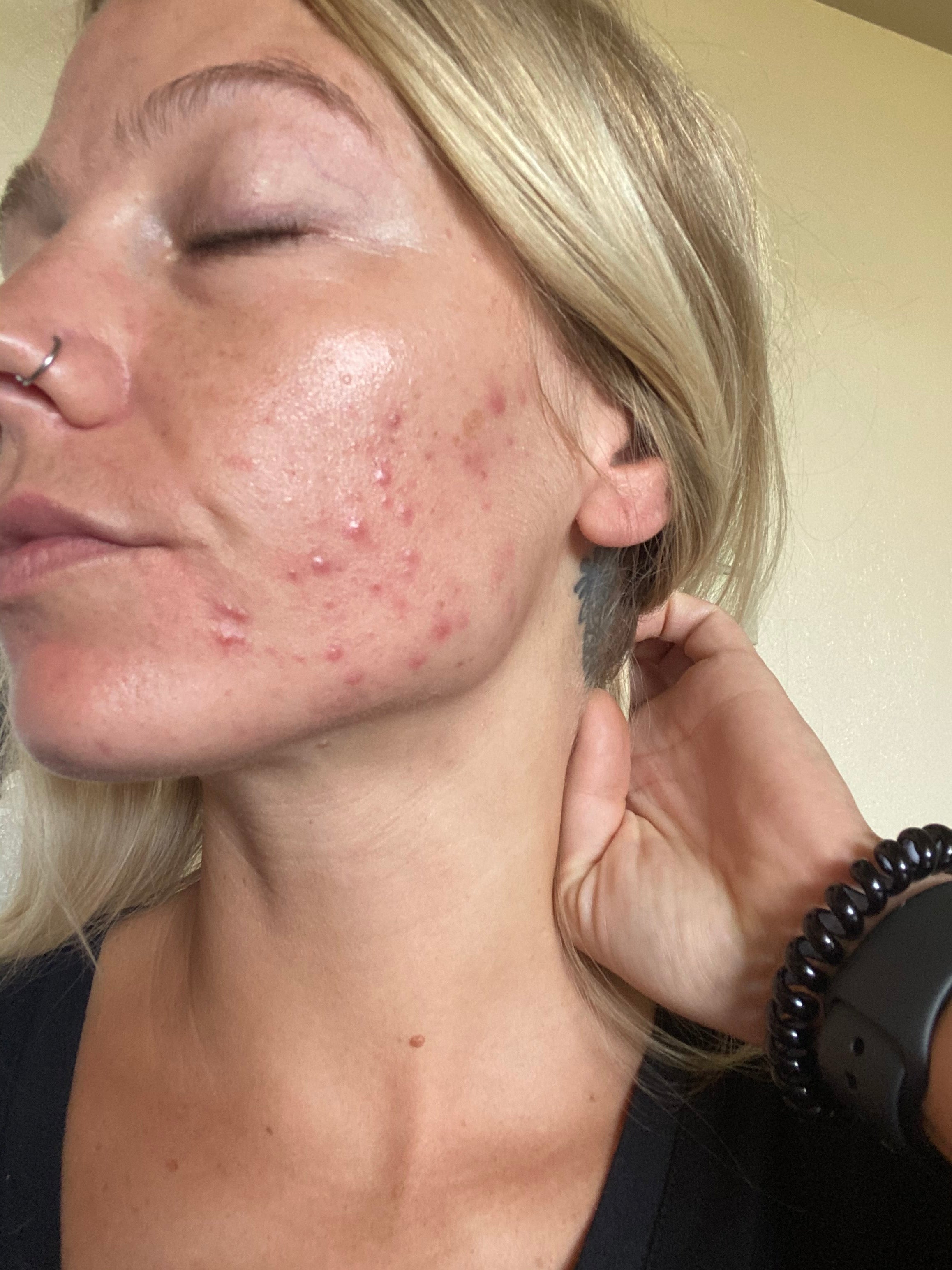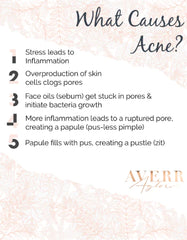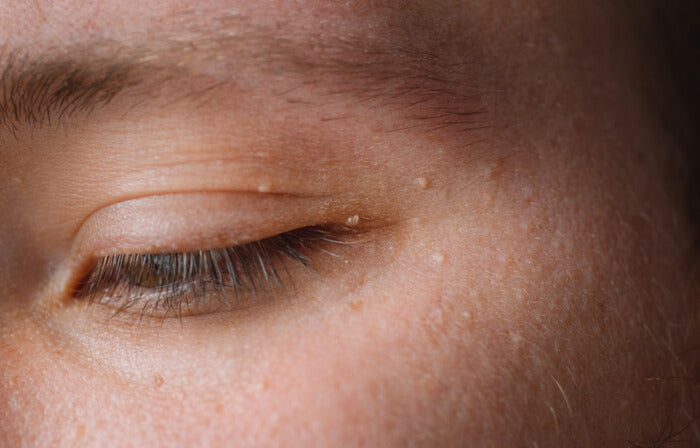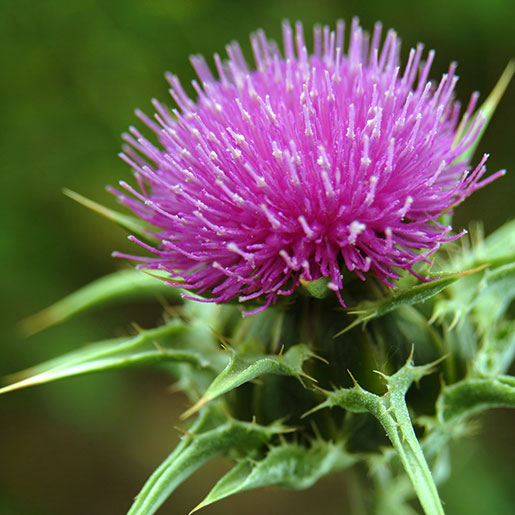
Types of Acne: Identifying and Managing
Acne, a pervasive skin condition affecting millions worldwide, can be a source of frustration and challenge. However, the key to successful treatment lies in identifying the specific type of acne afflicting you. We'll unravel the mysteries of various acne types, non-cystic acne, causes, triggers, treatment, and prevention.
What is Acne?
Acne, a prevalent skin condition, results from the obstruction of your skin's pores. These blockages manifest as various blemishes, including blackheads, whiteheads, and other forms of pimples. These pimples can be filled with pus and may occasionally cause discomfort.
What adds to the dimension of acne vulgaris, is the scientific umbrella term encompassing all forms of acne. Each new blemish can bring its unique characteristics, while the underlying factors remain constant.
Acne tends to manifest most commonly on the face, upper chest, and back. This preference arises from its affinity for areas of the skin with the highest concentration of sebaceous glands. These glands play a pivotal role in generating and distributing sebum onto the skin's surface, contributing to both moisture retention and protective functions.
Identifying Your Acne Type
Acne comes in various forms, each with its own set of characteristics and treatment considerations. Identifying the specific type of acne you have is crucial for choosing the right skincare regimen and seeking appropriate treatment. Here are some common types of acne and how to recognize them:
- Whiteheads (Closed Comedones): These are small, white, or skin-colored bumps with closed pores. They occur when hair follicles become clogged with oil and dead skin cells.
- Blackheads (Open Comedones): Similar to whiteheads, blackheads are small bumps, but their pores are open at the surface, often appearing darker due to exposure to air.
- Papules: Papules are small, red, inflamed bumps that don't contain pus. They can be tender to the touch.
- Pustules: Pustules are similar to papules but contain pus at their center, giving them a white or yellow appearance. They often appear as raised red bumps.
- Nodules: Nodules are large, solid, and painful lumps beneath the skin's surface. They are deep-rooted and may not have a visible center of pus.
- Cysts: Cystic acne is the most severe form, characterized by large, painful, fluid-filled lumps and can cause scarring.

These different types of acne can range in severity from mild to severe, and treatment options may vary depending on the type and the individual's specific skin condition.
What is Non-Cystic Acne?
Non-cystic acne, often referred to as mild to moderate acne, encompasses several common forms of acne, such as whiteheads, blackheads, papules, and pustules. These types of acne are generally less severe and easier to manage than cystic acne.
What are the symptoms of acne?
Acne typically manifests through a variety of symptoms, and the severity can vary from mild to severe. Common symptoms of acne include:
- Blackheads and Whiteheads: These are non-inflammatory types of acne. Blackheads are open pores with dark tops, while whiteheads are closed comedones with a white or skin-colored appearance.
- Papules: Small, red, inflamed bumps on the skin's surface that are usually not filled with pus.
- Pustules: Red, inflamed bumps with a white or yellow center containing pus. These are often visible on the surface of the skin.
- Nodules: Large, solid, and painful lumps beneath the skin's surface. Nodules are deeper and more severe than pustules or papules.
- Cysts: The most severe form of acne, characterized by large, painful, fluid-filled lumps beneath the skin. Cysts can lead to scarring and are often associated with significant inflammation.
- Tender or Painful Bumps: Some acne lesions, particularly nodules and cysts, can be painful to the touch.
- Redness and Inflammation: Acne lesions, especially when inflamed, can cause redness and swelling in the affected areas.
- Scarring: In severe cases or when acne lesions are manipulated, scarring may occur.
It's important to note that acne can affect various parts of the body, with the face, neck, chest, back, and shoulders being common areas. The specific symptoms and their severity depend on factors such as the type of acne and an individual's skin type.
What Causes Acne
Acne is a complex skin condition driven by factors like excess sebum production, hormonal fluctuations, and bacterial growth. Here's a concise breakdown:
- Sebum Overproduction: Hormonal changes, especially during puberty, can lead to an overproduction of skin oil (sebum).
- Clogged Pores: Excess sebum mixes with dead skin cells, clogging hair follicles.
- Bacterial Growth: Propionibacterium acnes bacteria thrive in these clogged follicles, triggering inflammation.
- Inflammation: The body's immune response results in redness and the formation of acne lesions.
- Hormonal Influence: Androgens stimulate sebaceous glands, contributing to sebum production.
- Genetic Factors: Genetics can influence an individual's predisposition to acne.

This interconnected process highlights the importance of addressing various factors for effective acne prevention and treatment.
What Triggers Acne?
Acne can be triggered by a combination of factors, and its development often involves a complex interplay of genetic, hormonal, environmental, and lifestyle influences. Here are some common acne triggers:
- Hormonal Fluctuations: Hormonal changes, especially during puberty, menstruation, pregnancy, and hormonal disorders, can stimulate sebaceous glands to produce excess oil, leading to acne.
- Excess Sebum Production: Overproduction of sebum, the skin's natural oil, can result in clogged pores and acne. This may be influenced by genetics or hormonal factors.
- Bacterial Growth: The presence of Propionibacterium acnes (P. acnes) bacteria on the skin, particularly in clogged hair follicles, can contribute to inflammation and acne development.
- Genetics: A family history of acne may increase an individual's susceptibility to the condition.
- Certain Medications: Some medications, such as corticosteroids, and certain birth control pills, can affect hormone levels and potentially trigger acne.
- Dietary Factors: While the relationship between diet and acne is complex and varies among individuals, some studies suggest that certain foods, such as dairy and high-glycemic-index foods, may influence acne development in some people.
- Stress: Chronic stress can trigger hormonal changes that may exacerbate acne.
- Environmental Factors: Exposure to pollutants, high humidity, and certain cosmetic products can contribute to acne formation.
Understanding these triggers helps individuals take preventive measures and make informed lifestyle choices. However, it's essential to note that the specific causes of acne can vary from person to person.
Foods That Trigger Acne
While the relationship between diet and acne is complex certain foods may potentially contribute to acne development in some individuals. Here are some types of foods that have been associated with acne triggers:
- Dairy Products: Some studies propose a connection between the consumption of dairy products, particularly skim milk, and an increased risk of acne.
- High-Glycemic-Index Foods: Foods with a high glycemic index, such as sugary and processed items like white bread, sweets, and soft drinks, may contribute to acne by influencing blood sugar and insulin levels.
- Chocolate: While evidence is inconclusive, some studies suggest that certain compounds in chocolate may impact acne development in susceptible individuals.
- Fast Food and Junk Food: High-fat and greasy foods, common in fast food and processed snacks, might contribute to acne development.
- Saturated and Trans Fats: Diets high in saturated and trans fats, often found in fried foods and some processed snacks, may be associated with acne.
- Omega-6 Fatty Acids: An imbalance between omega-6 and omega-3 fatty acids in the diet may contribute to inflammation, potentially worsening acne.
It's important to note that the impact of these foods can vary and for many individuals, diet may not significantly influence acne. Maintaining a balanced, nutrient-rich diet and staying hydrated is generally beneficial for overall skin health.
How Acne is Treated Naturally
- Revamp Your Skincare Routine for Clearer Skin: Combatting acne starts with a comprehensive overhaul of your skincare regimen.
- Eliminate Acne-Causing Foods from Your Diet: Your journey to clear skin involves avoiding specific foods known to trigger acne.
- Ditch Dairy: Dairy products can induce skin inflammation and stimulate excessive oil production due to components linked to hormones like testosterone.
- Cut Down on Sugar: Despite its irresistibility, sugar found in treats like cakes and high-sugar fruits, can contribute to skin issues. Be mindful of your intake.
- Say No to Fast Food: Fast food, a common culprit, is detrimental to both your overall health and skin. Packed with refined grains, sugar, and artificial meats, it's a skin health adversary.
- Prioritize Vitamin Supplements: Boost your skin's health and overall well-being by incorporating supplements into your routine, ensuring your body receives essential nutrients.
- Embrace Self-Care Days: Don't overlook the power of self-care. Allocate time for self-pampering, and witness the positive impact on every aspect of your life, including your skin. Customize your spa day to lavish your skin with the care it deserves!
What is the most difficult acne to treat?
The most challenging form of acne to treat is often considered to be cystic acne. Cystic acne is characterized by large, painful, and deeply embedded cysts beneath the skin's surface. These cysts are more extensive and more inflamed than other types of acne blemishes. Due to their depth and intensity, cystic acne lesions are less responsive to topical treatments, making them harder to manage.
Acne Treatment Safe for Pregnancy
With our culture increasingly valuing all things natural and organic, a wealth of healthy skincare options becomes more accessible to everyone. It's crucial, as always, to consult with your healthcare provider before incorporating any products or ingredients into your pregnancy skincare routine. Here at Averr Aglow®, we emphasize the use of high-quality, natural ingredients. Key natural actives such as rosewater, saw palmetto, manuka oil, French pink clay, and camellia collaborate to combat bacteria, regulate skin oil, promote an even tone, diminish lines and marks, and rejuvenate, fostering a healthy and radiant complexion.
How Can I Prevent Acne?
Preventing acne involves adopting a comprehensive approach that addresses various factors contributing to its development. Here are some tips to help prevent acne:
- Cleanse Regularly: Gently cleanse your face twice a day to remove excess oil, dirt, and dead skin cells. Avoid harsh scrubbing, as it can irritate the skin.
- Choose Non-Comedogenic Products: Opt for skincare and makeup products labeled as non-comedogenic to avoid clogging pores.
- Moisturize: Use a lightweight, oil-free moisturizer to keep your skin hydrated without exacerbating oiliness.
- Hands Off: Avoid touching your face, as hands can transfer dirt and bacteria to the skin, potentially causing breakouts.
- Healthy Diet: Maintain a balanced diet with plenty of fruits, vegetables, whole grains, and lean proteins. Limit the intake of high-glycemic foods and dairy, which may contribute to acne in some individuals.
- Stay Hydrated: Drink an adequate amount of water to keep your skin hydrated and help flush out toxins.
- Manage Stress: Practice stress management techniques like meditation, yoga, or deep breathing, as stress can contribute to acne flare-ups.
- Regular Exercise: Engage in regular physical activity to promote healthy circulation and reduce stress. Remember to shower promptly after exercising to remove sweat and prevent pore blockage.
- Sun Protection: Use a broad-spectrum sunscreen with an SPF of 30 or higher to protect your skin from harmful UV rays. Some acne medications can increase sensitivity to the sun.
- Avoid Squeezing or Picking: Resist the urge to squeeze or pick at acne lesions, as it can lead to scarring and worsen inflammation.
- Choose the Right Cleanser: Use a gentle cleanser suitable for your skin type. Harsh cleansers can strip the skin of essential oils, triggering increased oil production.
Remember that individual responses to preventive measures can vary, and it may take time to see noticeable improvements.






